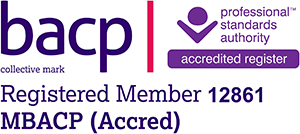Cognitive behavioural therapy combines behaviour therapy which emphasises the importance of changing behaviour to help overcome mental health problems, and cognitive therapy, which looks at how we change our understanding of events and their meaning.
The same event may lead to a range of emotions depending on how an event is interpreted and evaluated. It is, therefore, not the events that cause the negative feelings but how we understand the event and the meaning we attach to it. In addition, when people hold unrealistic and negative beliefs about themselves or their experience, an emotional upset will occur.
CBT can assist in managing a wide range of psychological issues, including depression, anxiety disorders, alcohol and drug misuse and eating disorders. The cognitive-behavioural approach is largely self-help, with the aim being to help clients develop skills to overcome not only their current problems but also any similar ones in the future.
Early on in the process, it is important for the therapist to emphasise to the client the possibility of change by helping them to think of moving forward in their lives and what they may achieve rather than continually focusing on the issues that have led to their difficulties. A summary of the steps involved in CBT are to teach the client to:
- Monitor emotional upsets and triggers;
- Identify faulty thinking and beliefs;
- Realise the connections between thinking, emotions and behaviour;
- Test out faulty thinking and beliefs by examining the evidence for and against them;
- Substitute the negative thinking with more realistic thinking;
Improvements in CBT have come to light due to both research and clinical practice; abundant scientific evidence surrounds it, proving that the methods used, do produce change. In summarising the above, CBT is based on a variety of essential principles:
- Psychological problems are based, in part, on faulty or unhelpful ways of thinking.
- Psychological problems are based, in part, on learned patterns of unhelpful behaviour.
- Individuals suffering from psychological problems can learn better ways of coping with them, thereby relieving their symptoms and becoming more effective in their lives.
What Cognitive Behavioural Therapy Involves
CBT treatment usually involves exercises to adjust thinking patterns, strategies such as the below may be used:
- Learning to recognise your own distortions in thinking that are creating problems and then reevaluate them in light of reality.
- Gaining a better understanding of the behaviour and motivation of others.
- Using problem-solving skills to cope with difficult situations.
- Learning to develop a greater sense of confidence in your own ability.
In addition, CBT involves efforts to change behavioural patterns:
- Facing your fears instead of avoiding them - ‘Avoidance is maintaining behaviour.
- Using role-play to prepare for potentially problematic interactions with others.
- Learning to calm and relax your body.
Not all CBT therapists work with the same methods; many work with the client to establish a perspective of the situation and develop a treatment strategy. CBT focuses on allowing the patient to become their own therapist through session exercises and homework exercises to develop coping skills to change the way they think about things to assist in managing uncomfortable emotions and to change the way they behave in response.
If you feel like you could benefit from cognitive behavioural therapy, contact me today to book an appointment, alternatively I also offer online counselling sessions.


